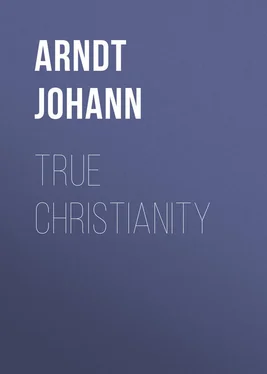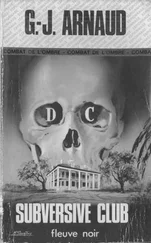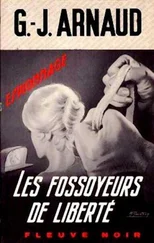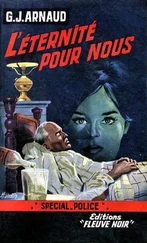Johann Arndt - True Christianity
Здесь есть возможность читать онлайн «Johann Arndt - True Christianity» — ознакомительный отрывок электронной книги совершенно бесплатно, а после прочтения отрывка купить полную версию. В некоторых случаях можно слушать аудио, скачать через торрент в формате fb2 и присутствует краткое содержание. ISBN: , Жанр: foreign_antique, foreign_prose, на английском языке. Описание произведения, (предисловие) а так же отзывы посетителей доступны на портале библиотеки ЛибКат.
- Название:True Christianity
- Автор:
- Жанр:
- Год:неизвестен
- ISBN:http://www.gutenberg.org/ebooks/34736
- Рейтинг книги:5 / 5. Голосов: 1
-
Избранное:Добавить в избранное
- Отзывы:
-
Ваша оценка:
- 100
- 1
- 2
- 3
- 4
- 5
True Christianity: краткое содержание, описание и аннотация
Предлагаем к чтению аннотацию, описание, краткое содержание или предисловие (зависит от того, что написал сам автор книги «True Christianity»). Если вы не нашли необходимую информацию о книге — напишите в комментариях, мы постараемся отыскать её.
True Christianity — читать онлайн ознакомительный отрывок
Ниже представлен текст книги, разбитый по страницам. Система сохранения места последней прочитанной страницы, позволяет с удобством читать онлайн бесплатно книгу «True Christianity», без необходимости каждый раз заново искать на чём Вы остановились. Поставьте закладку, и сможете в любой момент перейти на страницу, на которой закончили чтение.
Интервал:
Закладка:
§ 25. On his death-bed he repeated anew, as we have seen, that he continued, as heretofore, to adhere faithfully to the pure evangelical doctrine. In the two copies of his last will and testament, of the years 1610 and 1616, he solemnly declares that he had always held with full consciousness and understanding the doctrines of the Augsburg Confession and the Formula of Concord, and never departed from their contents either in his public teaching or his private views, that he never would adopt any other faith, and that he prayed that the grace of God might sustain him in this frame of mind until his last hour should come. The singularly emphatic manner in which, on every appropriate occasion – and many of such occurred – he declared his sincere belief in the peculiar and distinctive doctrines of the Lutheran Church, in all their details, as set forth in her Symbolical Books, by no means proceeded from a narrow-minded sectarian feeling. “Christ is all, and in all” (Col. 3:11) – these apostolic words indicate the spirit of Arndt's religion. He could not sympathize with the Papist, who robs Christ of the glory which belongs exclusively to his atoning work – not with the Unitarian, who attempts to dethrone Him – not with the fanatic, who, even when honest, is misguided by passion and spiritual pride – not with the unbeliever, who flees from the shame of the cross – not even with his Reformed fellow-Christians, whose merits he readily acknowledged, but whose rejection of the Lutheran doctrine respecting the Person of Christ and the Lord's Supper, as set forth especially in the Formula of Concord, grieved his soul. He had found the precious Gospel truth, which constituted his life, to be identical with the creed of his Church, and with that creed alone, in all its glorious fulness. He could not consent to sacrifice one jot or one tittle of the Augsburg Confession, nor could he assign to it an isolated position, even though Zwingli and his associates readily adopted it, with the single exception of Article X. Nor did his heart or his conscience allow him to ignore the other Lutheran Symbols. The Augsburg Confession undoubtedly contained the pure truth of the Gospel, without any admixture of errors; but, owing to the circumstances and the times in which it originated, when it was the great object of Luther and his associates to justify their course in withdrawing from antichristian Rome, it confined itself to those principles which were then specially debated. Hence Calvin, who differed so widely on some points from the fully developed Lutheran creed, readily adopted and subscribed it at Strasburg. – The Apology , or Vindication of the Augsburg Confession, set forth, among others, the cardinal doctrine of the Lutheran faith, namely, Justification by faith alone, with extraordinary power and purity. Its full, lucid, and strictly scriptural character has never been successfully controverted. For this very reason the Apology was rejected by Papists, as it now is practically by Rationalists and others who depend on human merit, and are unwilling to give all honor to the Saviour alone. – The Smalcald Articles , which Luther prepared in order to set forth the points on which no Protestant or Bible Christian could make any concession to Popery, are also offensive to Papists, to Rationalists, and to the unbelieving and impenitent generally, as they contain the pure evangelical truth, which humbles man, while it exalts God. — The Two Catechisms (the Large and the Small) furnish materials for popular instruction in revealed truth, which have never been equalled by other manuals, in their adaptation to the object, their fulness, and their purity. Hence, a friend of divine truth, like Arndt, who took so deep an interest in the religious education of the young, could not do otherwise than regard them as of inestimable value. An enemy of the truth would naturally disavow them. – The Formula of Concord – the last of the series of Lutheran Confessions of Faith, and the one which Arndt appears to have prized most highly – was intended, as we have shown above, to determine various important points involved in the controversies which had arisen in the bosom of the Lutheran Church before or at the time when he was born. The very circumstance that this Symbol was demanded by the exigencies of the Church, demonstrates that the Augsburg Confession was not originally designed to be a full and complete confession of faith , but only a statement of points discussed during the infancy of the Reformation. While it excludes every error which might dishonor God, and confirm the impenitent sinner in his evil course, it completes the previous Symbols, and forms with them an undivided and harmonious whole, exhibiting with brilliancy, power, and spotless purity the Person of the God-Man, Jesus Christ, and glorifies God alone. A confession of faith which so unreservedly unveils the fearful character of Original Sin, while it so fully explains and establishes the true doctrine of the Lord's Supper, would naturally be unwelcome to an impenitent heart; whereas, the devout Arndt found nothing in it but animating and heavenly truth. Hence he desired to be regarded as simply an Evangelical Lutheran Christian, – an adherent of the Formula of Concord.
§ 26. Religion assumed an unusually attractive and beautiful form in Arndt, and is strikingly shadowed forth in his “True Christianity;” this work is an admirable portraiture of his inner man. He was naturally of a grave, but not by any means of an unsocial or gloomy disposition; he would not otherwise have been styled “the Fenelon of Protestantism.” Dr. Wildenhahn, whose charming work (entitled Johannes Arndt ) embodies strictly accurate historical notices, and derives only subordinate matter, such as incidents in domestic life, conversations, etc., from analogy and a fruitful imagination, exhibits him in the true light, as an affectionate husband, a cheerful companion, a generous and self-sacrificing friend of the sick and the poor – in short, as a model in all the relations of life. There is no exaggeration in this language. He possessed great firmness of character; indeed, a truly heroic spirit dwelt in him. He manifested this trait on many trying occasions – not only when he preferred poverty and exile to a denial of a single Gospel truth or Lutheran usage, but also in many other scenes of conflict. The ravages of the pestilence could not alarm his heroic soul; the open and violent denunciations of enemies he always encountered in the spirit of Him who said: “If I have spoken evil, bear witness of the evil; but if well, why smitest thou me?” (John 18:23.) There was a certain calmness or gentleness in his manner of treating his enemies, which, combined with his earnestness and candor in repelling their calumnies, invariably subdued them. Love – love, not to the amiable and good, or to the poor and sorrowing alone, but also to his enemies – was too often and too variously manifested, to leave the spectator in doubt respecting its true source – a genuine faith in Christ, and deep, ardent love to Him. In truth, it is here that the peculiar type of his religion is seen; he lived more in heaven than on earth. The sacerdotal prayer of Christ (John, Chap. 17) was an unfailing source of light, of hope, of peace and joy to his soul. Expressions like these, “As thou, Father, art in me, and I in thee, that they also may be one in us” (ver. 21) – “I in them, and thou in me, etc.” (ver. 23), and language like that of Paul: “Christ in you, etc.” (Col. 1:27), furnished him virtually with the formula: “Christ in me, and I in Christ.” Such was his faith in Christ, and such was his love to Him, that he was always calm and hopeful. Hence features appeared in his religious character which his worldly-minded contemporaries could not fully appreciate; they were formed by two different series of Gospel doctrines, which cannot come in conflict, but which relate to two entirely different objects – Christ, the Saviour, and fallen man. No one more sincerely embraced the doctrine of Original Sin, as held by the Lutheran Church, than Arndt did; of this his writings furnish the evidence. His own searching self-examination, constantly maintained in the light of Scripture, revealed to him the utter corruption of his own heart by nature; he found nothing in himself but sin. He was conscious that he could do nothing without Christ, and deeply felt that grace – nothing but grace – could renew his nature, and save him. These convictions induced him to insist with such earnestness, in his Four Books, on the true and genuine repentance of the sinner. At the same time, there was nothing like sternness, gloom, or despondency connected with his sincere and profound self-abasement. For he received with equal strength of faith another series of truths – he believed with all his heart that “after the kindness and love of God our Saviour toward man appeared, not by works of righteousness which we have done, but according to his mercy he saved us, by the washing of regeneration, and renewing of the Holy Ghost; which he shed on us abundantly through Jesus Christ our Saviour; that being justified by his grace, we should be made heirs according to the hope of eternal life.” Tit. 3:4-7. Here a new tide of emotions flowed through his soul. Wonder, joy, gratitude, love, took possession of him. His large heart was full of happiness that the lost could be found and saved – that “where sin abounded, grace did much more abound.” Rom. 5:20. And now, when these two distinct principles appear in him in their practical union, the type of his religion is clearly developed. He was grave and earnest, humble, and free from all confidence in himself, for he was “by nature a child of wrath.” Eph. 2:3. But, on the other hand, God had, in pity and in love, given him a Saviour, engrafted him in that Saviour through Holy Baptism, bestowed on him the fulness of grace, and invited him, as a repentant, believing, pardoned child of Adam, to enter heaven. If sin abounded through the first Adam, grace did, through the second Adam (1 Cor. 15:45), much more abound. His writings, therefore, now assume a very cheerful character — love is the prevailing theme. Nothing morose appears in them – sorrow for sin and repentance – faith in Christ and love to him, are his soul-inspiring themes, and a cheerful spirit, a sense of fervent, joyful gratitude to God, a heavenly calm, pervade alike his heart and its language as uttered in the “True Christianity.”
Читать дальшеИнтервал:
Закладка:
Похожие книги на «True Christianity»
Представляем Вашему вниманию похожие книги на «True Christianity» списком для выбора. Мы отобрали схожую по названию и смыслу литературу в надежде предоставить читателям больше вариантов отыскать новые, интересные, ещё непрочитанные произведения.
Обсуждение, отзывы о книге «True Christianity» и просто собственные мнения читателей. Оставьте ваши комментарии, напишите, что Вы думаете о произведении, его смысле или главных героях. Укажите что конкретно понравилось, а что нет, и почему Вы так считаете.












